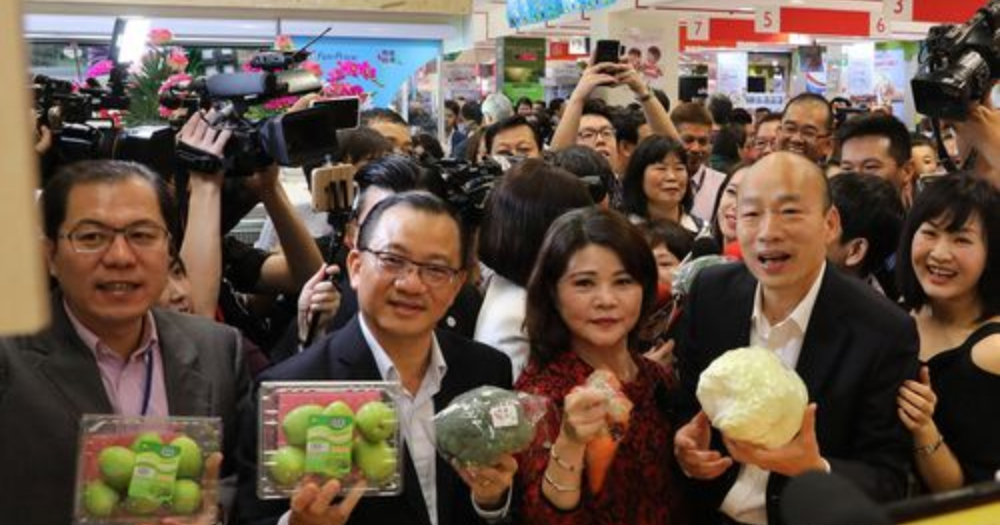Newly-elected charismatic Kaohsiung mayor Han Kuo-yu was recently in town to promote the southern Taiwanese city's agricultural products.
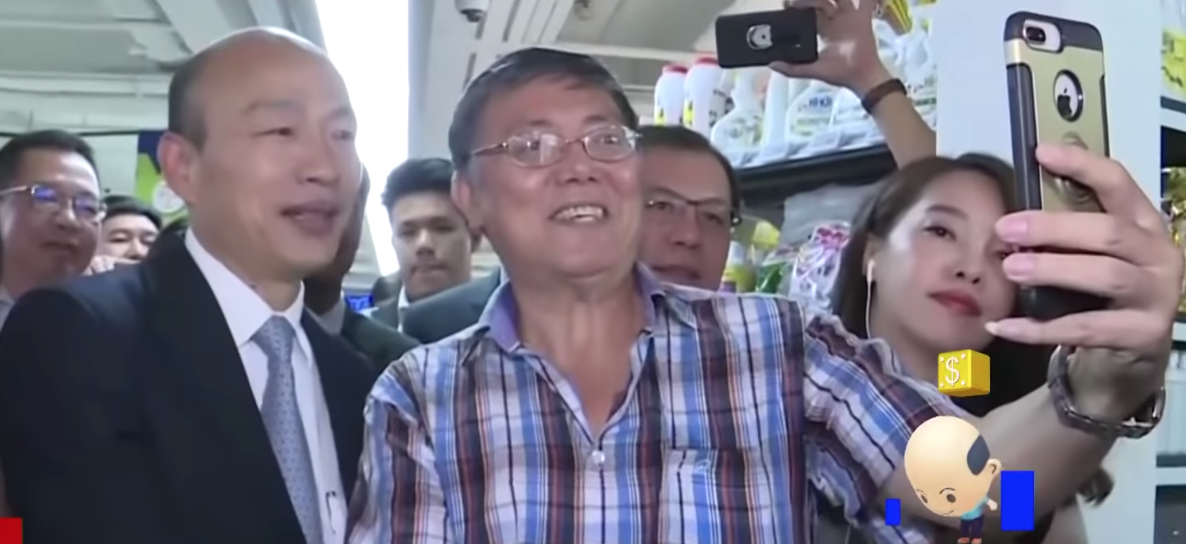 Screenshot via EBC News/YouTube
Screenshot via EBC News/YouTube
He inked deals with both NTUC FairPrice and Sheng Siong on Feb. 26, in a deal that would bring fresh fruits and vegetables directly from Kaohsiung to Singapore for the next three years.
Straight from Kaohsiung
According to Channel 8 News, some of the produce that consumers can find are Jin Huang mangoes, red guavas, "golden" pineapples, maogu mandarin oranges, and Kyoho grapes.
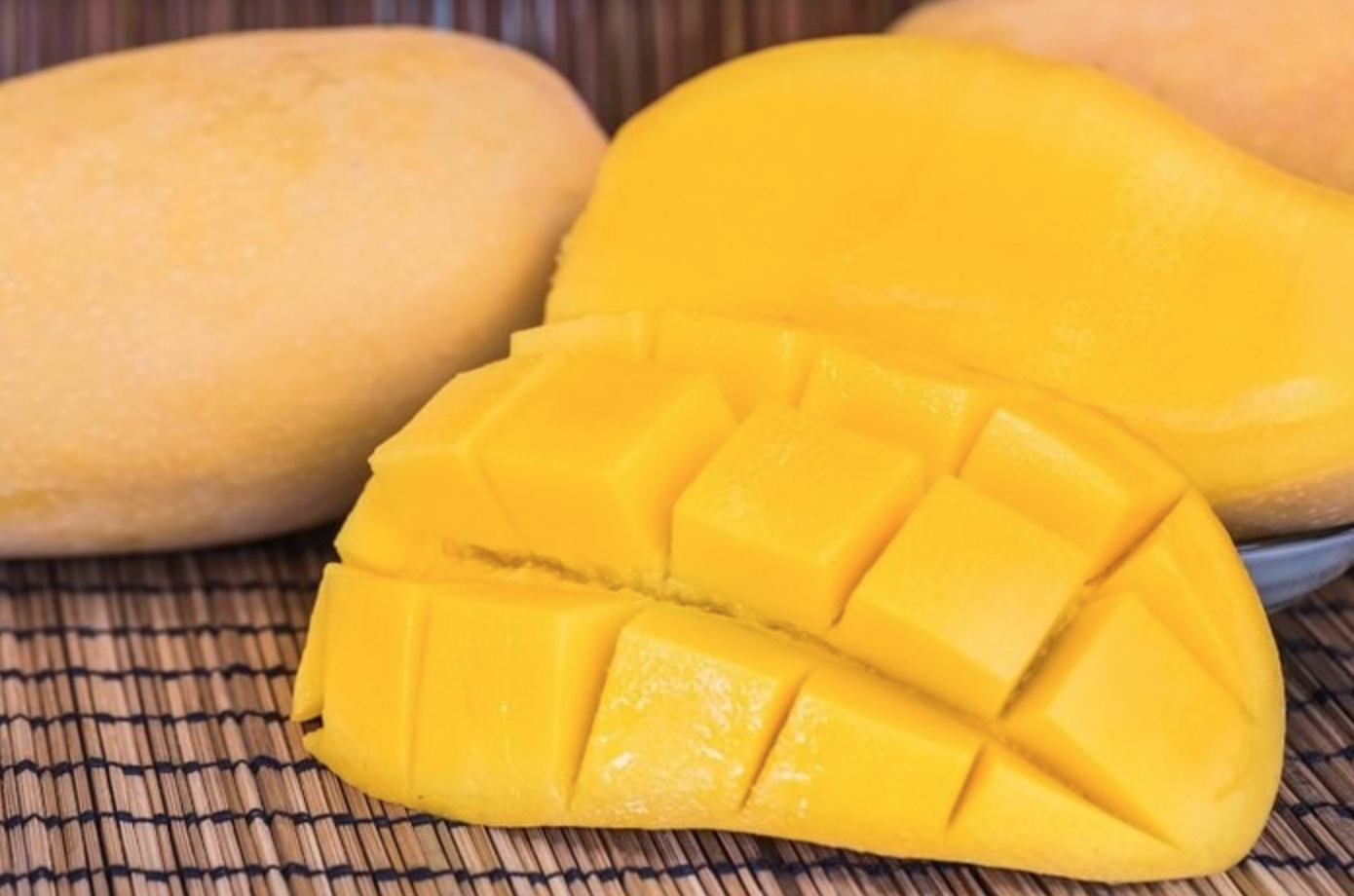 Jin Huang mangoes are cultivated in Taiwan. They are known for their high quality and sweetness. (Image via Rakuten)
Jin Huang mangoes are cultivated in Taiwan. They are known for their high quality and sweetness. (Image via Rakuten)
The imported fruits from Taiwan are expected to cost slightly more than average.
This is because they cost more to produce, Han told the media while touring the Sheng Siong supermarket at Junction 10 located in Bukit Panjang.
But he assured consumers of the high quality of the Kaohsiung produce.
NTUC FairPrice will also hold two food fairs each year for three years to sell seasonal produce, reported The Straits Times.
According to Focus Taiwan, the deal signed with NTUC FairPrice is worth NT$23 million (approximately S$1.01 million) per year, while the deal signed with Sheng Siong is worth NT$11.5 million (approximately S$506,000) per year.
Consumers will be able to find the Kaohsiung goods easily as the areas holding the produce are indicated by special signage featuring a cartoon representation of the mayor.
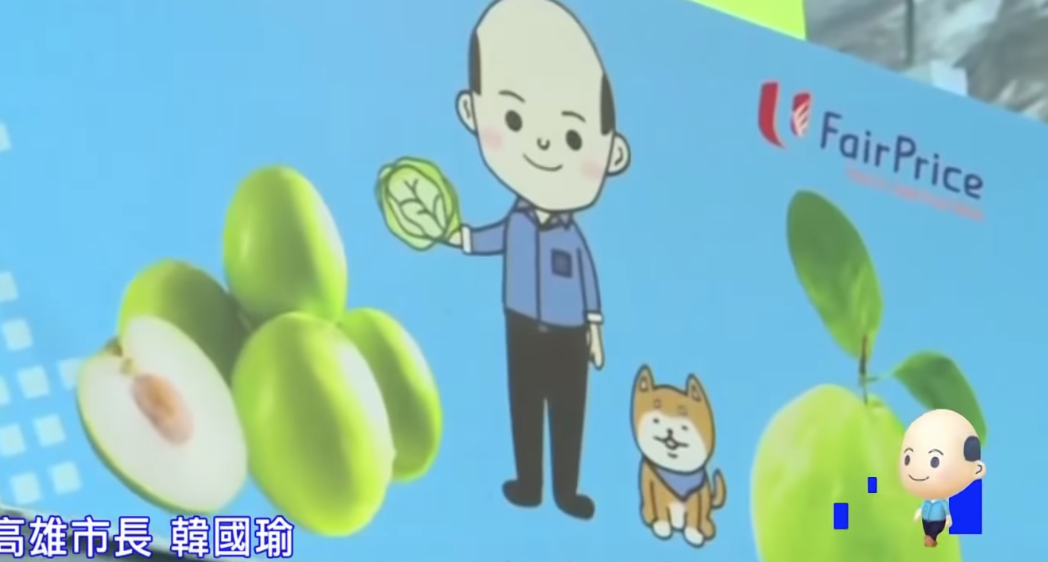 Screenshot via EBC News/YouTube
Screenshot via EBC News/YouTube
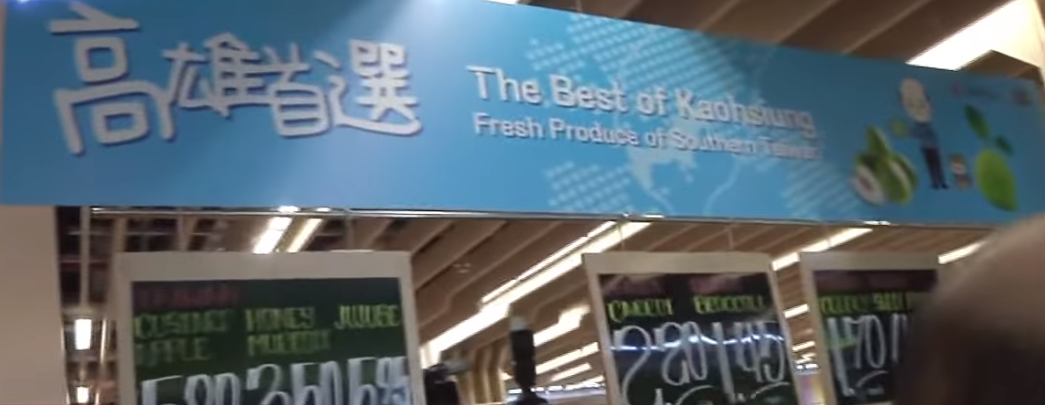 Screenshot via CTV News
Screenshot via CTV News
The cartoon character design is the same as the label of a Kaoliang liquor that was produced by a liquor factory in Matsu, Taiwan, to commemorate Han's victory in the local elections in 2018.
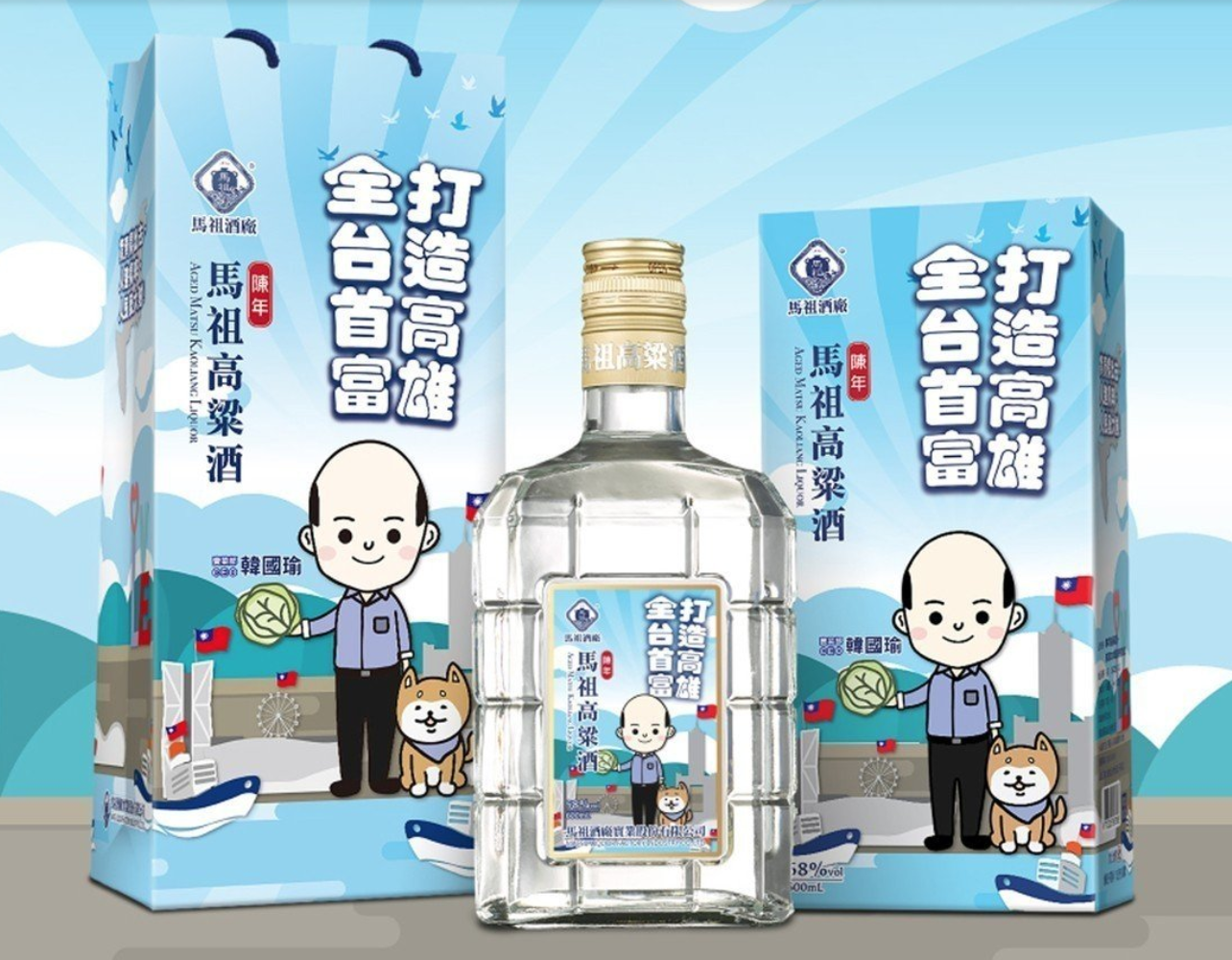 Kaoliang wine is a strong distilled liquor made from fermented sorghum. This commemorative edition has 58 per cent alcohol content. (Image via Matsu Liquor Factory Industry CO., LTD)
Kaoliang wine is a strong distilled liquor made from fermented sorghum. This commemorative edition has 58 per cent alcohol content. (Image via Matsu Liquor Factory Industry CO., LTD)
The victory was significant as it was the first time the Kuomintang (KMT) managed to break the Democratic Progressive Party's (DPP) 20-year hold on Kaohsiung.
Han's first official visit to Singapore
Han was on a five-day visit to Singapore and Malaysia -- his first official overseas trip since becoming Kaohsiung mayor.
He first flew to Kuala Lumpur, Malaysia, last Sunday (Feb. 24) before flying to Singapore on Monday (Feb. 25).
When he arrived at Changi Airport, he received a warm reception from the crowd there who were waiting for him.
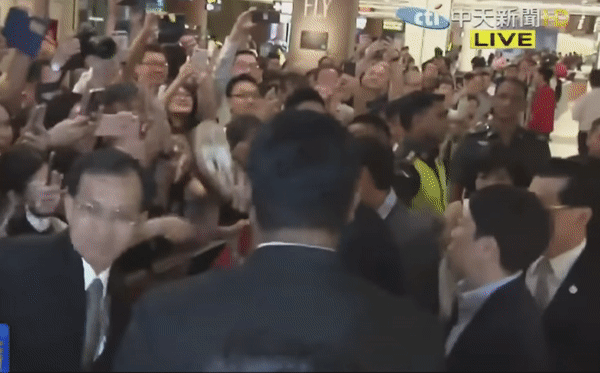 GIF adapted via CTi News
GIF adapted via CTi News
While touring around Sheng Siong supermarket, Han showed his affable side when he took several selfies with his fans who were eager to meet him.
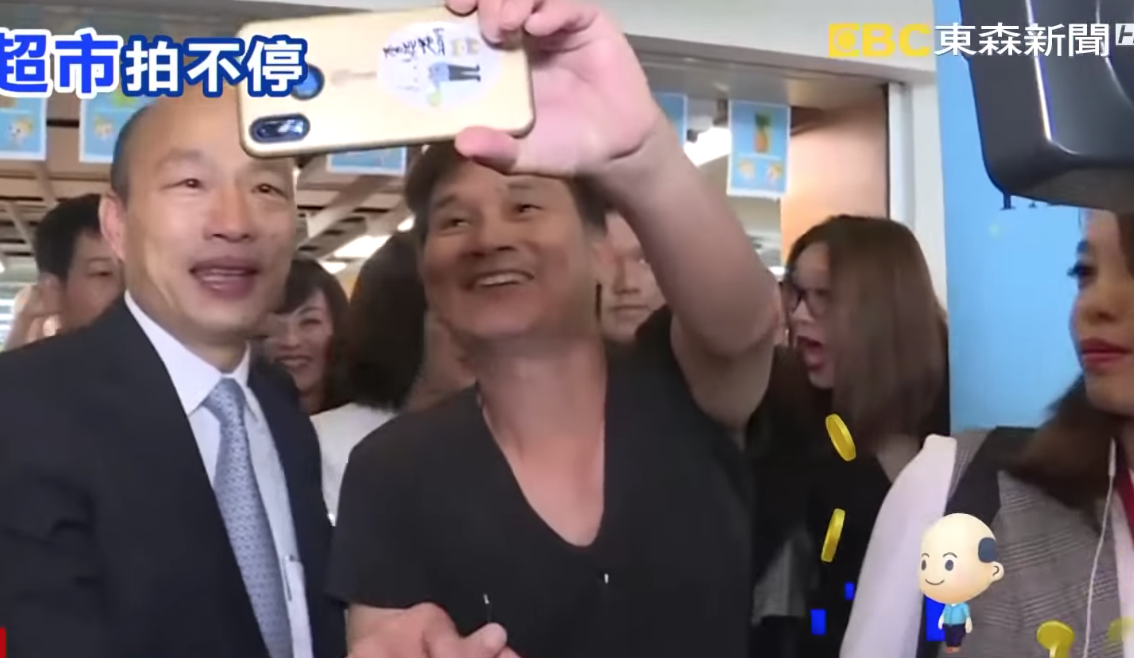 Screenshot via EBC News/YouTube
Screenshot via EBC News/YouTube
He even helped a fan adjust the angle of the selfie, after jokingly saying to the fan that he could not take a picture with him as the fan had "too little hair".
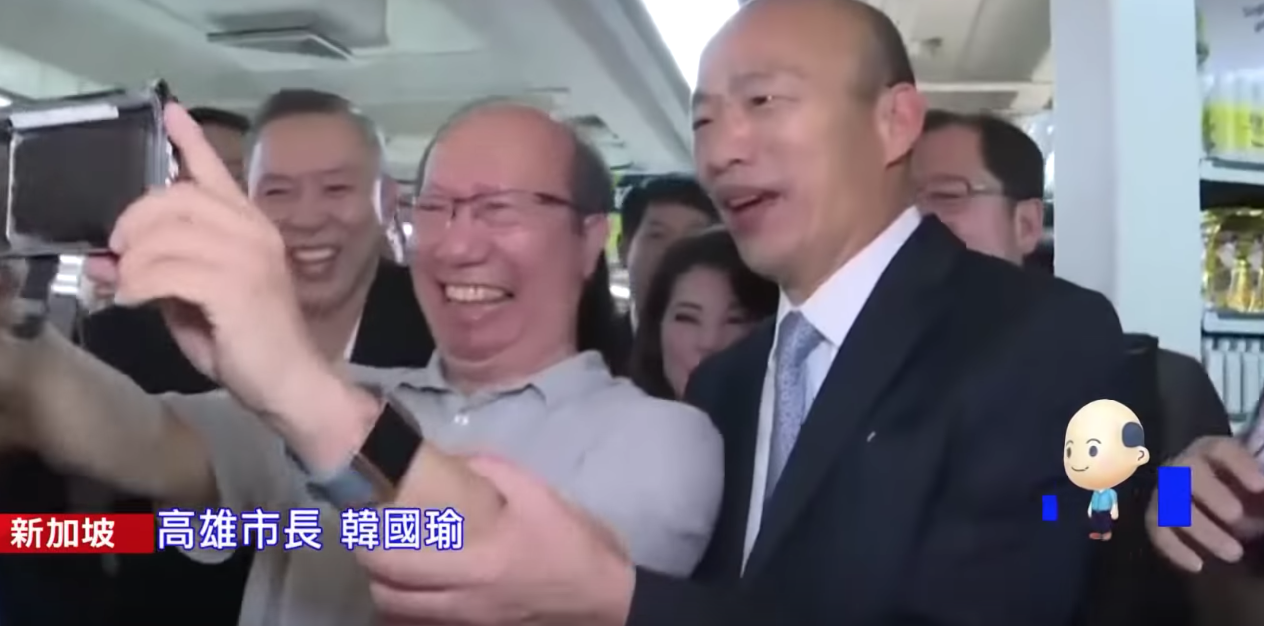 Screenshot via EBC News/YouTube
Screenshot via EBC News/YouTube
The Kaohsiung City Government said that Han’s trip to Singapore and Malaysia will help broaden the international market for Kaohsiung’s agricultural and fishery products.
Before leaving for KL from Taoyuan International Airport last Sunday (Feb. 24), Han said he hopes to convey to the rest of the world that "Kaohsiung is opening its arms to all cities, nations and territories", reported Taipei Times.
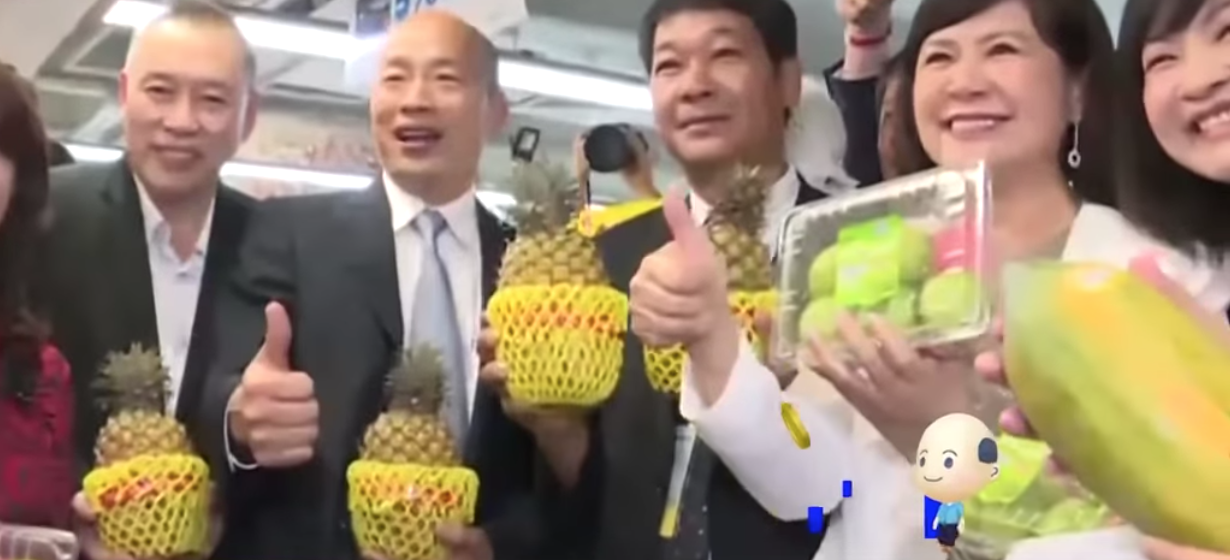 Screenshot via EBC News/YouTube
Screenshot via EBC News/YouTube
Han also stopped by the National University of Singapore (NUS) Enterprise, a start-up incubator, where he told reporters that while Taiwan was leading in entrepreneurship 30 years ago, it now has to catch up to other places like Singapore, Hong Kong and mainland China.
Han says Taiwan has much to learn from Singapore
Han had plenty of praises for Singapore too.
In an interview with Lianhe Zaobao, he said Taiwan has much to learn from Singapore when it comes to the areas such as the latter's urban planning, garbage management, youth entrepreneurship, bilingual educational policy and global competitiveness.
He also praised Singapore's foreign policy, saying it is a lesson worth learning when it comes to modern diplomacy.
He likened the country's foreign policy to "a small swallow weaving through the woods in a nimble and flexible way", and credited the late Lee Kuan Yew for it.
He also turned his attention to Taiwan's cross-straits relations with mainland China, saying that if relations with Beijing worsen, the path that Taiwan walks on will become even tougher.
Finally, while he acknowledged his and his party's rising popularity among the Taiwanese people, he said it is still extremely important to remain close to ground sentiments and not get ahead of themselves.
To do this, the KMT will have to listen to what the people truly want, instead of being preoccupied by the power play in domestic politics, Han said.
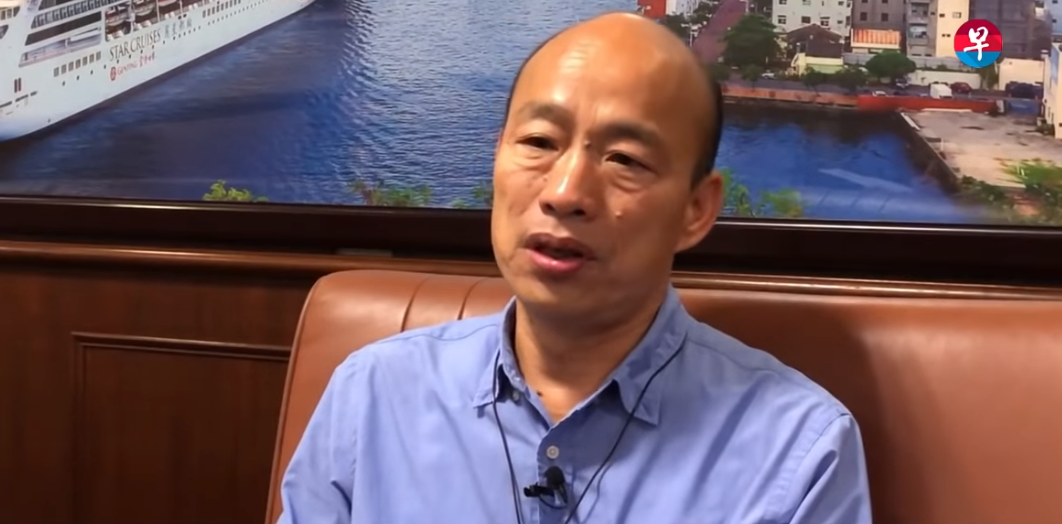 Screenshot via Lianhe Zaobao/YouTube
Screenshot via Lianhe Zaobao/YouTube
Who is Han Kuo-yu & what's this "Han wave" that everyone's talking about?
Han studied English Literature in university and holds a Master of Laws in East Asian studies.
Before serving as a legislator from 1992 to 2002, and KMT caucus leader for a short while, Han was a school principal.
He later left the legislature for Yunlin County, where he took up the post of general manager of Taipei Agricultural Products Marketing Corporation (TAPMC) in 2012.
Han's re-emergence on the political scene during the local elections in 2018 brought a "Han wave" all over Taiwan, catching everyone by surprise, including his predecessor who served as Kaohsiung mayor for 12 years, Chen Chu.
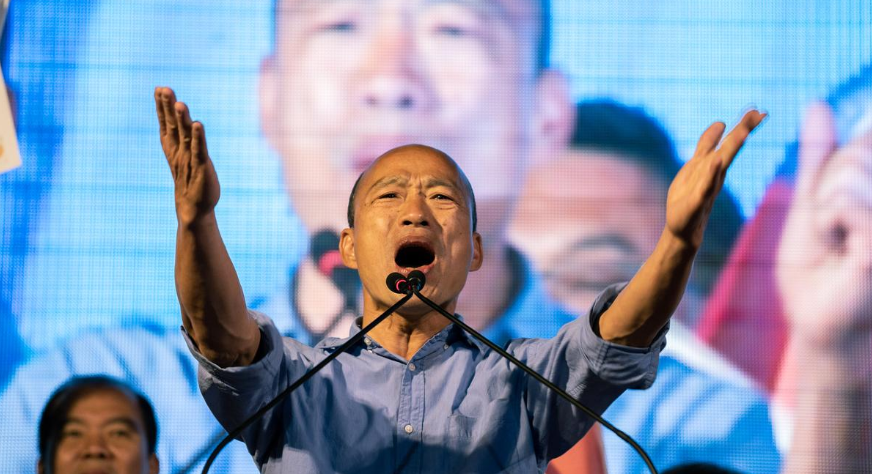 Image credit to 蘇威銘 and 林佑恩/The Reporter
Image credit to 蘇威銘 and 林佑恩/The Reporter
Chen, a member of the Democratic Progressive Party (DPP) was one of the most popular politicians in Taiwan's history.
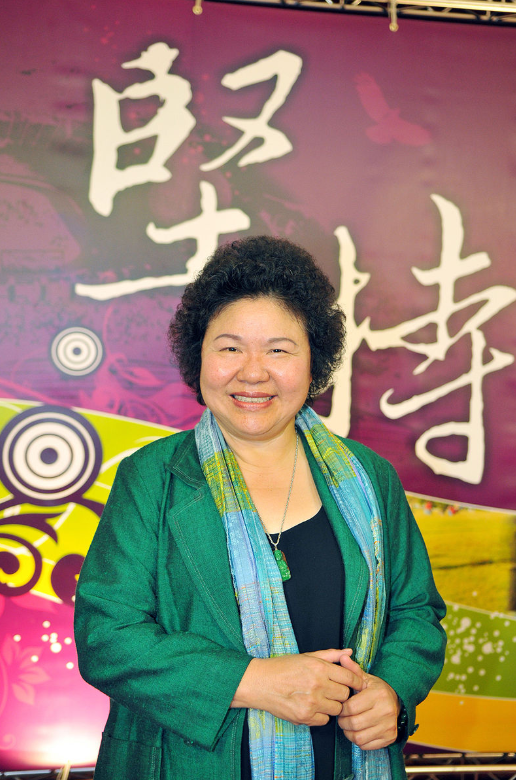 Image via Wikipedia
Image via Wikipedia
She had stepped down to take the post of Secretary General to the President in April 2018.
According to The News Lens, the DPP had thought it was safe to do so as Kaohsiung has been a DPP stronghold for two decades, and the KMT seemed to be missing suitable candidates for the post.
But the KMT later put forth Han as their candidate in May 2018.
The decision seemed odd at that time due to a number of reasons, such as Han's gangster affiliation and strong Chinese nationalist ties.
Han's colourful past
According to Taiwan News, Han had controversial links to Xu Tian-de, leader of the gang, Tiandao League.
Han's political career in the past was tainted as well -- he flipped a table, punched and hospitalised former Taiwanese President Chen Shui-bian in the parliament building back in 1993.
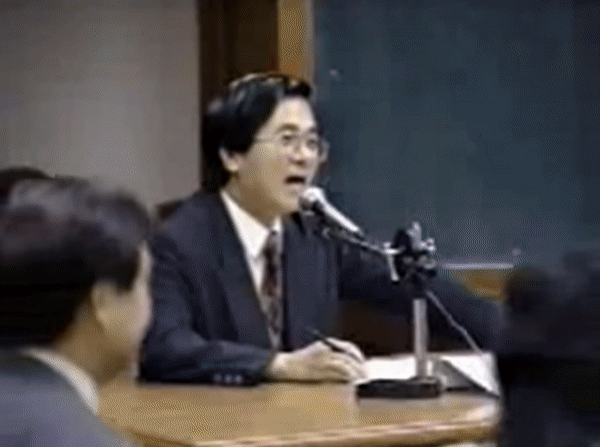
His Chinese nationalist links -- he was said to have strong ties to the "deep-blue", Huang Fu-hsing faction of the KMT -- also made KMT's candidate choice rather strange as Kaohsiung is known for its fierce Taiwanese pride.
Han was also born to mainland Chinese parents who came to Taiwan along with the retreat of the Chinese Nationalist Army in the 1940s -- people who arrived in Taiwan from the mainland from the 1940s to the 1980s were known as Taiwan wai sheng ren (台湾外省人), as opposed to those who came before that time (ben sheng ren, 本省人).
However, Han, a former KMT outcast, gained massive support from the people of Kaohsiung, so much so that other KMT candidates wanted to be seen together with him to boost their own popularity.
As compared to DPP's candidate Chen Chi-mai, who was seen as a political elite, Han's "commoner" image and off-the-cuff remarks resonated with the Kaohsiung masses, who found him to be a refreshing change to the conventional politicians they had gotten used to.
Wang Kung-yi, a political-science professor at Chinese Culture University in Taipei, told South China Morning Post (SCMP):
"[Han] is more like a populist than a political elite, a sharp contrast to the conventional KMT types who are either well-learned scholars or members of famously rich and political families like Sean Lien, son of the former vice-president Lien Chan."
And this perception from the people has served Han well in Kaohsiung, where the people identify with grassroots movements rather than the elite.
The fascination with Han was not unlike the time when Trump bemused the American media and public while he was running for president, although the latter was more known for his infamous ways.
There are even growing calls in recent weeks for Han -- barely two months since he took office -- to run for President as the KMT’s presidential candidate in 2020 elections.
Judging by the current tides of Han's growing popularity, the "Han wave" does not seem to have signs of ebbing anytime soon.
Top image via Central News Agency
If you like what you read, follow us on Facebook, Instagram, Twitter and Telegram to get the latest updates.
